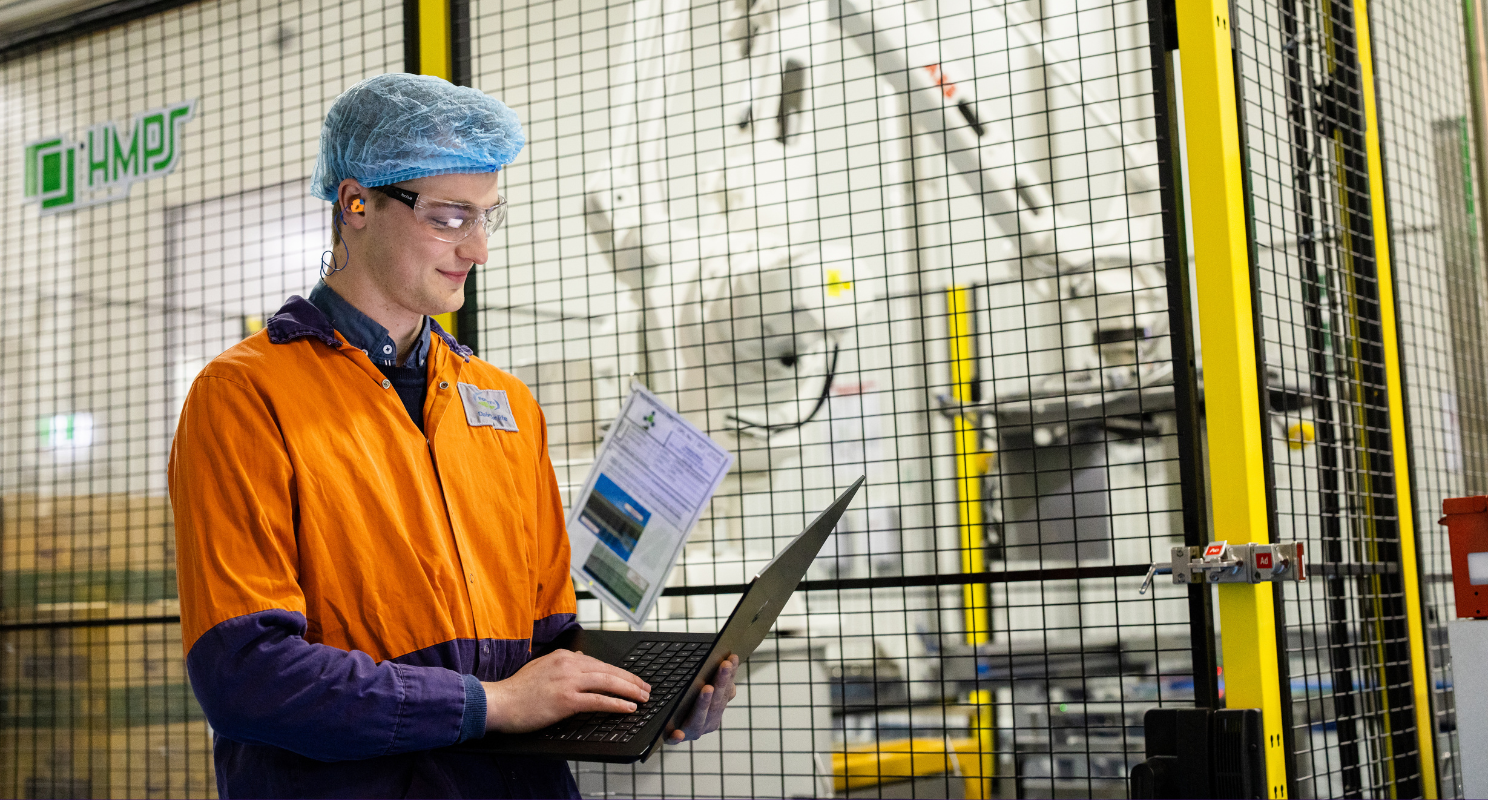Landing your first job can be daunting, especially when you’re still in high school. That’s why we’ve teamed up with Fonterra to reveal some insider tips to help you get started on your career journey!
Whether you’re a high school student or an early-career seeker, this insider advice can help you land your first job and get work-ready! So, keep on reading to unlock everything from resume formatting tips to interview techniques that you’ll really want to know about!
First Job Tips With Fonterra Oceania
At Fonterra, nurturing talent and providing opportunities for growth is a priority. Their Employee Value Proposition, “Imagine Tomorrow,” reflects their commitment to empowering you to create goodness for generations.
Ready to land your first job? Here are some of Fonterra’s top tips to help you get started on your career journey and achieve your professional goals as you embark on your first job search:
Resume Writing Tips
Creating a standout resume is your first step towards landing your dream job. Your resume is a snapshot of your skills, experiences, and achievements, and it needs to make a strong impression on potential employers. Here are some tips to help you craft a resume that will get you noticed:
- Keep It Simple and Tailored: Focus on your key responsibilities and achievements. Use data to highlight your successes and tailor your resume specifically for the role by adding relevant keywords from the job advert.
- Proofread and Format: Ensure your resume is error-free and easy to read. Use clear headings, check your contact details, and save your resume as a PDF for improved readability.
- Highlight Your Achievements: Make yourself stand out by listing your achievements in each role. Even if you’re still in high school, extra-curricular awards or academic achievements are still worth shouting about!
- Use a Professional Layout: Choose a clean and professional layout. Avoid using too many fonts or colours, and make sure your resume is well-organised and easy to navigate.
- Include Relevant Experience: Focus on including experience that is relevant to the job you are applying for. This can include internships, volunteer work, and part-time jobs.
- Showcase Your Skills: Highlight both your hard and soft skills. Hard skills are specific, teachable abilities such as proficiency in a software program, while soft skills are interpersonal skills like communication and teamwork.
- Keep It Concise: Aim to keep your resume to one or two pages. Be concise and only include information that is relevant to the job you are applying for.
Cover Letter Tips
Now you’ve got your resume nailed, it’s time to work on your cover letter! A well-written cover letter can set you apart from other candidates. It’s your chance to showcase your personality, highlight your relevant experiences, and explain why you’re the perfect fit for the role. Here are some tips to help you write a compelling cover letter:
Tips for Writing a Cover Letter
- Make It Personal and Customised: Outline how you can help, talk about your skills and previous experience, and show that you’ve researched the role and company before-hand.
- Avoid Common Mistakes: Don’t simply repeat the content from your resume in your cover letter. Spelling or grammar mistakes may influence how your potential employer views your application so be sure to check for errors before sending it off!
- Ask for a Peer Review: Parents and teachers have been through this process themselves, and they’d be more than happy to offer words of wisdom if you ask them to proofread your letter!

Interview Preparation
Preparing for an interview can be nerve-wracking, but with the right approach, you can make a great impression. From researching the company to practising your answers, here are some tips to help you feel confident and ready for your interview:
- Know Where You’re Going: Make sure you know the location of your interview and how to get there. Plan your route in advance and allow extra time for any unexpected delays. If your interview is online, ensure you have the correct link and that your device is working properly.
- Practice Your Interview Technique: Practice answering common interview questions and think about how you can showcase your skills and experiences. Use the STAR method (Situation, Task, Action, Result) to structure your answers and provide clear examples of your achievements.
- Research the Company and Role: Take the time to research the company and the role you are applying for. Understand the company’s values, mission, and recent news – a quick Google search could go a long way! This will help you tailor your answers and show that you are genuinely interested in the position.
- Prepare Good Questions: Have some thoughtful questions ready to ask the interviewer. This shows your interest in the role and the company, and it can also help you determine if the job is the right fit for you.
- Dress Appropriately: Choose an outfit that is professional and appropriate for the company’s culture. If you’re unsure, it’s better to be slightly overdressed than underdressed.
- Be Positive and Confident: Approach the interview with a positive attitude and confidence in your abilities. Remember to smile, make eye contact, and give a firm handshake if the interview is in person.
- Understand the Interview Structure: Expect a structure that includes a meet and greet, work history and technical questions, behavioural / competency-based questions, and a Q&A session. Knowing what to expect can help you feel more prepared and less anxious.
- Follow-Up After the Interview: Send a thank-you email to the interviewer(s) after the interview. Express your appreciation for the opportunity and reiterate your interest in the role!
Fonterra’s Tips For Behavioural / Competency-Based Interviews
We caught up with Fonterra Oceania’s Graduate Program Manager, Hannah, to find out more about their own interview process:
“At Fonterra, we use behavioural or competency-based interviews to get a better understanding of how you think and act in different situations. We’ll ask you to share specific examples from your experiences that show your approach and behaviour. This helps us see how you demonstrate the skills and experience needed for the role.”
Behavioural questions often start with phrases like, “Tell me about a time when…” or “Can you describe a situation where…”. To prepare, review your experiences and resume, and match them to the key competencies listed in the job description. This will help you provide relevant examples during the interview.
- Use the STAR Method: Structure your answers using Situation, Task, Action, and Result to showcase your skills and abilities.
- Provide Real-Life Examples: Use examples from work experience, academic, volunteering, or extracurricular activities.
- Sell Yourself: Understand your strengths and provide examples that support these. Be ready to articulate how you would overcome any gaps or work towards further developing the required skills.

Common Interview Mistakes to Avoid
Even the best-prepared candidates can make mistakes during an interview. Being aware of common pitfalls can help you avoid them and present yourself in the best possible light. Here are some common interview mistakes to watch out for (and how to avoid them):
- Lack of Preparation: Not researching the company or the role can make you appear uninterested. Make sure you understand the job description and the company’s values.
- Poor Body Language: Avoid negative body language such as crossing your arms, not making eye contact, or fidgeting. Positive body language can help you make a good impression.
- Not Answering the Question: Ensure you listen carefully to the questions and answer them directly. If you don’t understand a question, ask for clarification.
- Talking Too Much or Too Little: Find a balance in your responses and avoid giving overly long answers or one-word responses.
- Neglecting to Ask Questions: Prepare some thoughtful questions to ask the interviewer. This shows your interest in the role and the company.
As you start looking for your first job, remember that every step you take gets you closer to your goals. Stay positive, be prepared, and believe in yourself. We wish you the best of luck in your job search and can’t wait to see you achieve amazing things. Good luck
Stay Connected
Join Fonterra’s Talent Community to stay up to date with the latest job opportunities and company news. Sign up for job alerts and follow them on social media to stay connected with Fonterra.
Want to learn more? Discover Fonterra’s exciting job opportunities today.

